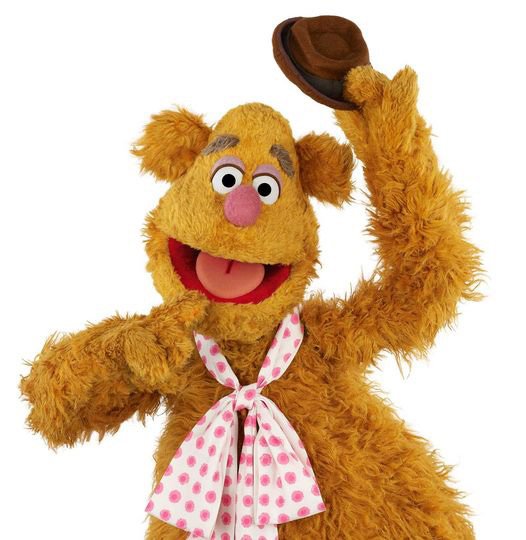

I would have strong views about Fozzie. Fozzie! And I thought it was only women who were given infantalising nicknames.
Is he called Fozzie after Fozzie Bear? I want him to be.
Fozzie Bear, if you are old enough to remember, was an orange-brown fuzzy bear on The Muppet Show, known for his bad jokes and his "Wocka wocka wocka" laugh.
Muppet Wiki (who knew that was a thing?) tells us that in the first season of the show he spent his time telling simple jokes with a punchline, while being heckled. Inept roller skating may have been involved. Then he moved on to imitating guest stars, trying to emulate their success but failing comically. That included fruitless attempts at becoming a magician and a ventriloquist.
But an issue with Fozzie Bear was that his jokes were so awful he ended up attracting more embarrassment than sympathy.
In one episode, he was so sick of the heckling he asked everyone but his true fans to leave. Everybody departed, leaving an empty theatre. Cue Fozzie departing the stage almost in tears.
So far, so sad. But over time writers built up the positive aspects of his personality, making him a more rounded character and turning his perpetual optimism into a plus.
Eventually, his ineptness became acceptable, endearing even, we are told.
As was stated in a Muppet Show introduction "Fozzie is always telling terrible jokes, but he’s just trying so hard you’ve got to love him".
Who knows if there is anything there for the New Zealand Fozzie to cling to, but it might be worth him remembering Fozzie Bear became one of the most popular Muppets.
As it happens, I have no strong views about Fozzie. If I did, I could shout them at the telly or loudly share them in public places with fellow rugby enthusiasts and anyone else unfortunate enough to be within earshot.
Nobody would care if I knew anything about rugby or even about Fozzie. I would be entitled to an opinion, and the louder the better, just because this is New Zealand and he is the All Blacks coach.
If I cared about the All Blacks, I could concern myself with scintillating rugby statistics. It would be a damn sight easier than trying to get to grips with the Data and Statistics Bill making its way through Parliament.
Statistics Minister David Clark wants to convince us there is nothing to fear here; that this Bill merely drags us into the modern age.
Data and statistics have the power to change people’s lives, he told Parliament. Access to robust, impartial data can give insights that ground effective democracy and ensure we have accountability.
The Bill’s provisions would ensure we have modern, fit-for-purpose legislation which can be used to "drive the changes we are seeing, to make sure they’re underpinned by good ethical frameworks".
But not everyone sees it as innocuous.
The New Zealand Council for Civil Liberties believes it dangerously conflates collecting data for official statistics with collecting and sharing data for unspecified research.
One of the contentious aspects of the Bill surrounds the collecting of administrative data — information gathered by a government department or agency when we interact with it — and using it to complement information gathered in traditional statistical surveys.
The council suggests that could result in Statistics NZ becoming a "data laundry" — where limited and specified purposes for data collection that government has to collect personal information can be "scrubbed away" by the Bill. In other words, enabling reuse of information gathered for one reason and allowing it to be reused for unspecified "research" purposes later.
A consistent opponent of the Bill has been former New Zealand Government Statistician and National Statistician for the United Kingdom Len Cook, whose concerns include the watering down of both the independence of the Government Statistician and longstanding obligations to protect confidentiality.
More recently, former prime minister and constitutional law authority Geoffrey Palmer hit the nail on the head when he said there had not been enough scrutiny of the Bill (even though it’s had its second reading).
Media coverage of the Bill has been patchy, and most parliamentarians’ contributions I have read made me wonder how well they understood any possible implications of the proposed legislation.
What’s the answer? Ideally, the Government swapping some hubris for humility and going back to the drawing board. If the Government wants our trust in information gathering, it must urgently address the poor job it is doing of public engagement on a variety of issues in this area.
- Elspeth McLean is a Dunedin writer.












